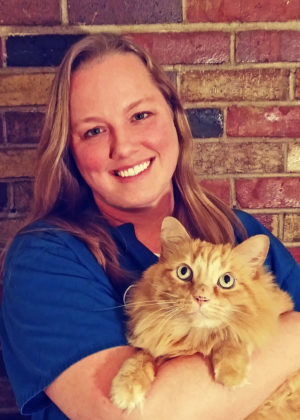ExpiredEmergency medicine in practice today – part one- prerecorded
Online course #6- prerecorded
| May 2nd, 2020

Tim Hackett D.V.M.
Diplomate, American College of Veterinary
Emergency & Critical Care
Professor of Emergency & Critical Care
Colorado State University
Amy Butler D.V.M.,MS.
Diplomate American College of Veterinary Emergency & Critical Care
President, Critical Consults
Successful Emergency and Critical Care in Your Practice
Dr. Hackett is a Professor in the Emergency medicine section and has a particular interest in shock, trauma, respiratory and transfusion medicine. Dr. Hackett came to Colorado State University as an assistant professor after directing the emergency medicine program at the West Los Angeles Animal Hospital. Dr. Hackett has lectured on emergency medicine to veterinarians around the world including Australia and Japan, and is fortunate to work in a Teaching Hospital that includes a large general practice and so approach clinical problems very practically. Dr. Amy Butler is a board-certified emergency critical care veterinary specialist. Currently Amy is President of Critical Consults in Pennsylvania.
Seminar Topics:
Lecture 1: Respiratory Emergencies:
This video based lecture will review the pathophysiology of respiratory distress. We will review the most common causes of respiratory emergencies, with an emphasis on understanding how the location of disease affects the breathing pattern. Just a simple physical exam can help elucidate the location of pathology, and help to guide your initial diagnostics and treatments.
Lecture 2: Shock, the basics: Hypovolemia and hemorrhage
This lecture will use a variety of small animal cases to cover fluid therapy in shock. We will manage acute hemorrhage, enteritis with severe dehydration, flea anemia and others. With these cases we’ll review fluid types, basic vascular access and intraosseous techniques. Blood and plasma transfusion basics will also be reviewed.
Lecture 3: Practical Head Trauma:
Head trauma is another common presentation to the emergency room – but how to effectively manage it? We will discuss how to rapidly perform an initial survey, how to calculate a modified Glasgow Coma Scale, and review the current literature on treatments and prognostic indicators.
Lecture 4: Shock, the challenging: Heart failure, Sepsis and SIRS
Drawing on the basics, this lecture will focus on more complicated circulatory shock. Using two cardiac cases (severe mitral insufficiency with pulmonary edema and a pericardial effusion) we’ll review the pitfalls of fluid therapy with cardiogenic shock while working through other support strategies including diuretics, venodilators, short term ventilation and positive inotropes. We will finish with cases of septic peritonitis and heat stroke to round out the treatment strategies for distributive shock.
Lecture 5: Update on Parvoviral Enteritis
Updates on parvovirus: Parvovirus is a significant cause of morbidity and mortality in canine patients worldwide. This talk reviews current treatment strategies with an emphasis on the most recent studies on this important virus, and how this information can be incorporated into treatment plans at any practice. Effective biosecurity measures will be reviewed as well.
Seminar Speakers
-
 Tim Hackett D.V.M.
Diplomate, American College of Veterinary
Emergency & Critical Care
Professor of Emergency & Critical Care Medicine
Chair, Dept. of Clinical Sciences
Cornell University
Tim Hackett D.V.M.
Diplomate, American College of Veterinary
Emergency & Critical Care
Professor of Emergency & Critical Care Medicine
Chair, Dept. of Clinical Sciences
Cornell University
-
 Amy Butler D.V.M., MS.
Diplomate American College of Veterinary Emergency & Critical Care
President, Critical Consults
Amy Butler D.V.M., MS.
Diplomate American College of Veterinary Emergency & Critical Care
President, Critical Consults
Registration Fees:
Please note that this course is not live. There are no CE credits currently available.
Your SEMINAR REGISTRATION NOTIFICATION e-mail will contain links to the Presentation Videos and the online notes.
IVS attendees who currently have an FTC (Future transfer Credit) from a previously cancelled seminar: $175.00
- Please do not use the online registration as you will be charged again. You cannot use the credit thru this online registration.
- Please e-mail with your request (include name of registrant and which seminar you were originally scheduled to attend) for registration – We will register you and deduct this amount from your credit.
E-mail your request to: ivsceonline@gmail.com
Any previous IVS attendee: $175.00- please use the online registration
Regular registration: $195.00- please use the online registration
Registration Includes:
- access to online course notes
- access to the prerecorded course online
- no CE credits available currently
Your SEMINAR REGISTRATION NOTIFICATION e-mail will contain links to the Presentation Videos and the online notes
Seminar Registration:
Add to Calendar
-
Online course #6
May 2, 2020 - June 30, 2021
10:00 am - 1:00 pm
Register online
Online registration is easy and fast.
But please confirm your hotel reservations prior to completing your registration or booking flights. Many Hotels are selling out many months ahead of our seminars. If you need to book a hotel room, click the link to the online hotel registration page. If none is available for your selected seminar, please fill out our hotel request form or contact our office at 800-487-5650. Please note that hotel rooms are not confirmed until you receive confirmation from the hotel (if you booked online thru our group link) or from our office for hotels that do not offer the online link.
IVS is now required by AAVSB RACE to upload your completed attendance into their “RACEtrack” system. Your state of license and your license number are required for all seminars starting in January 2022. More information is available at https://www.aavsb.org/ce-
Questions?
For regular seminars: ivseminars@yahoo.com
